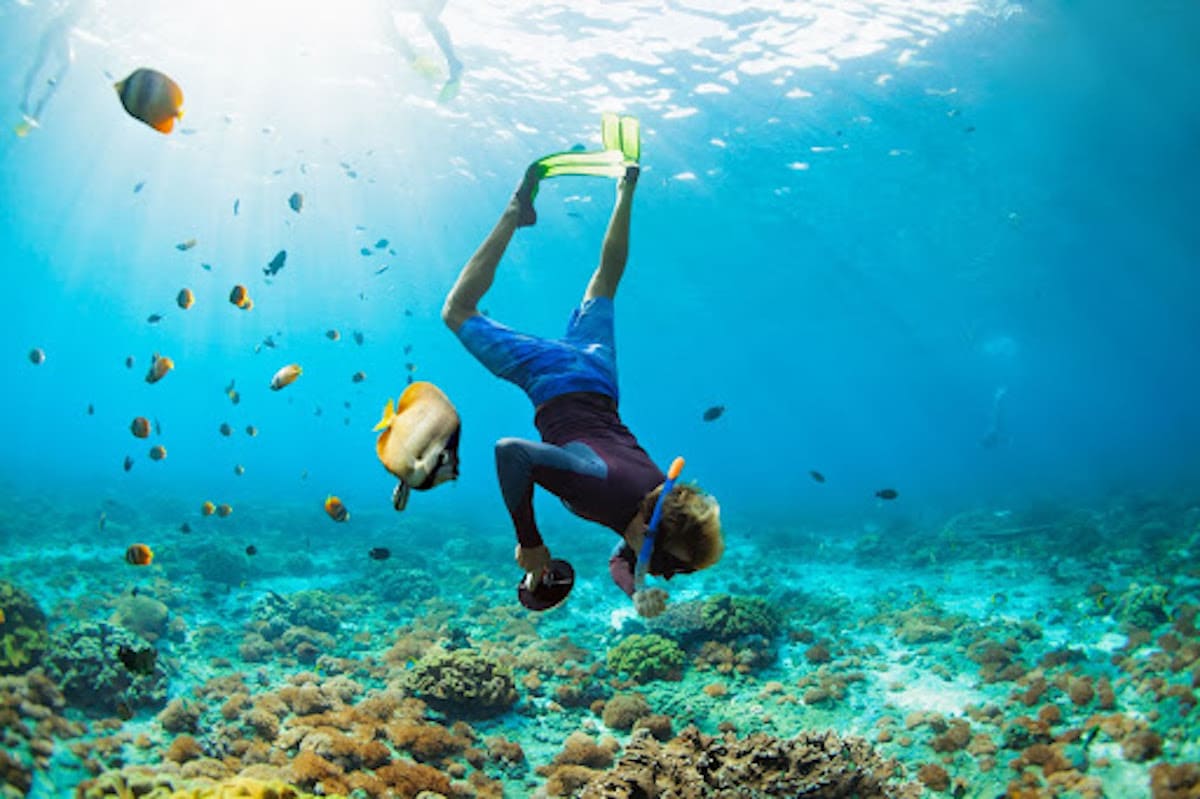Table of Contents
Recovering after any exercise is crucial to looking after your body and working towards your fitness goals. Whether you’re a seasoned diver or a newcomer to the sport, taking the time to recover correctly is paramount to continue pushing your limits and exploring the underwater world. In this article, we’ll dive into the best practices for freediving recovery and how to ensure you’re ready for your next dive.
What is freediving recovery?
Freediving recovery refers to the process of taking care of oneself after a freediving session. Since freediving requires intense mental and physical exertion, proper healing is essential to prevent injury and ensure optimal performance in future dives. This includes replenishing the body with necessary nutrients, fluids, and rest, as well as allowing the body to recover from the physical and mental stress of diving. By taking the time to recover properly, freedivers can continue to push their limits and enjoy the sport in a safe and sustainable manner.
Best practices for recovering after a freedive
The recovery process is vital for staying safe in and out of the water. Divers should take the following measures for a smooth recovery after freediving:
Rest and relaxation
The most important thing a diver can do after a freedive is rest. Like any physical activity, complete relaxation is essential to repairing muscles and reducing injury risk. Getting ample rest also means divers should avoid physical activity, including heavy lifting or exercise. It’s also beneficial to soothe the mind and implement relaxation techniques if you’re feeling self-critical and experiencing high-stress levels.
Maintain equipment
Regularly maintaining and inspecting freediving equipment can ensure it is in good condition and reduce the risk of equipment-related accidents or injuries. It’s best to do this during the recovery stage and before you dive again to ensure you’re safe and comfortable in the water.
If you need help finding diving gear that feels good and performs well, check out agulhasocean.com for durable equipment. The ethos at Agulhas Ocean is all about creating sustainable equipment that works well for the diver and the underwater world. So, you don’t have to compromise on quality to buy an ethically-made kit.
Hydration
Staying hydrated before, during, and after diving can reduce the risk of decompression sickness and other diving-related injuries and illnesses. You’re more likely to experience headaches, tiredness, and dizziness when dehydrated. Moreover, even mild dehydration (as little as 2%) negatively impacts performance in tasks that require attention, immediate memory skills, psychomotor, and assessment of the subjective state. So, be mindful of how much water you’re drinking and make it a priority to stay hydrated after your dive.
Monitoring symptoms
The recovery period is the perfect time to check for signs of sickness or injuries. It’s a good idea to monitor your mental and physical symptoms and seek medical attention if necessary.
Avoid alcohol and flying
There are some activities divers should avoid doing after freediving; these include drinking alcohol and flying. Drinking alcohol not only dehydrates you, but it also impairs judgement and functioning. Moreover, flying can increase the risk of decompression sickness due to changes in air pressure.
Wait between dives
Make sure to wait at least 24 hours between dives to allow your body sufficient time to recover and reduce the risk of diving-related injuries and illnesses. This includes scuba diving and other underwater activities!
Closing thoughts
Freediving recovery is essential to maintain safety during a diving experience. By giving our bodies time to rest and recharge, we can continue to push our limits and enjoy the many benefits of this sport.
Taking the time to implement proper recovery techniques remains vital throughout your freediving journey. Whether you’re a newbie or have been diving for years, it ensures you can continue exploring the ocean for years. So don’t hesitate to implement new relaxation techniques and see how much impact they can have on your freediving journey.


